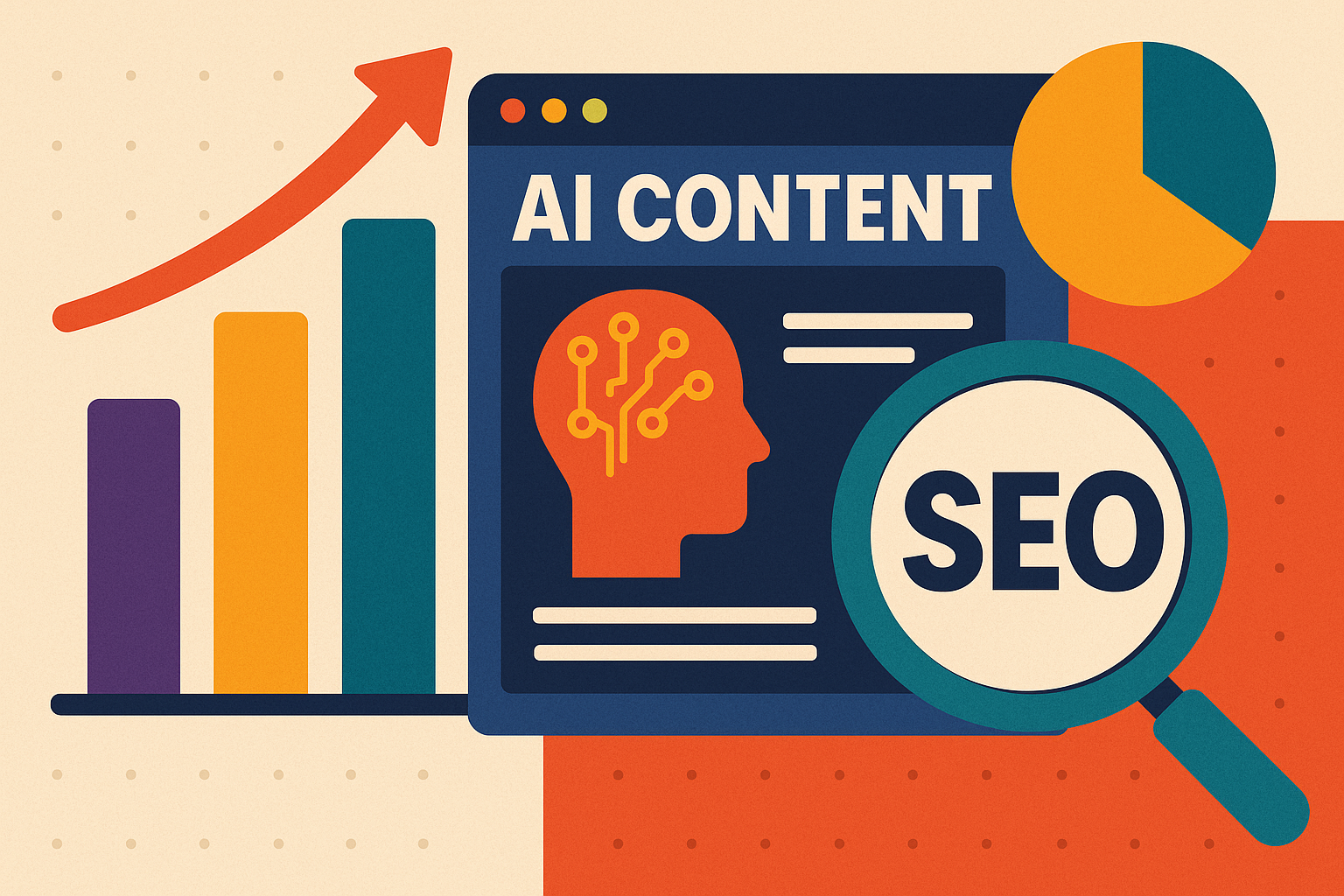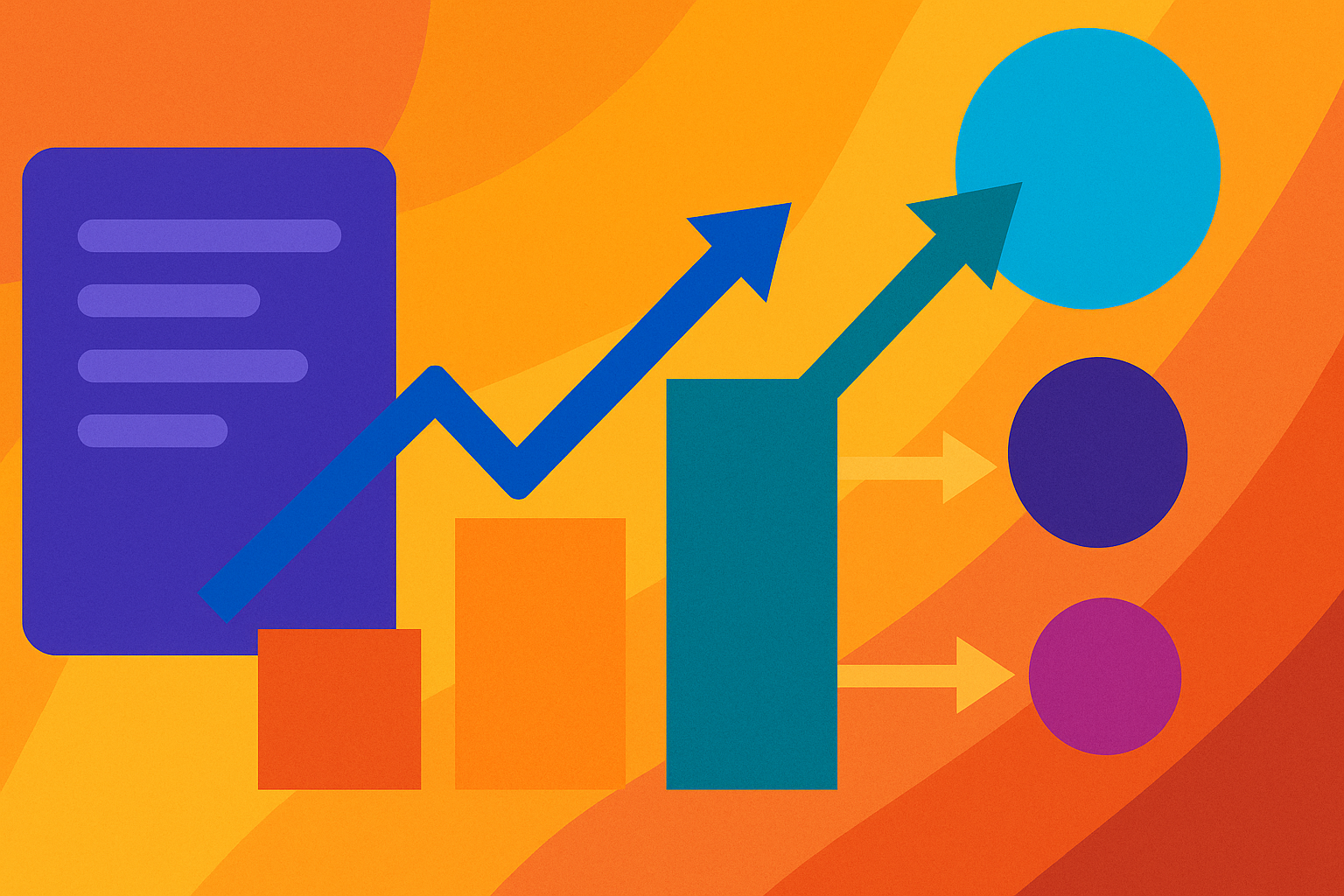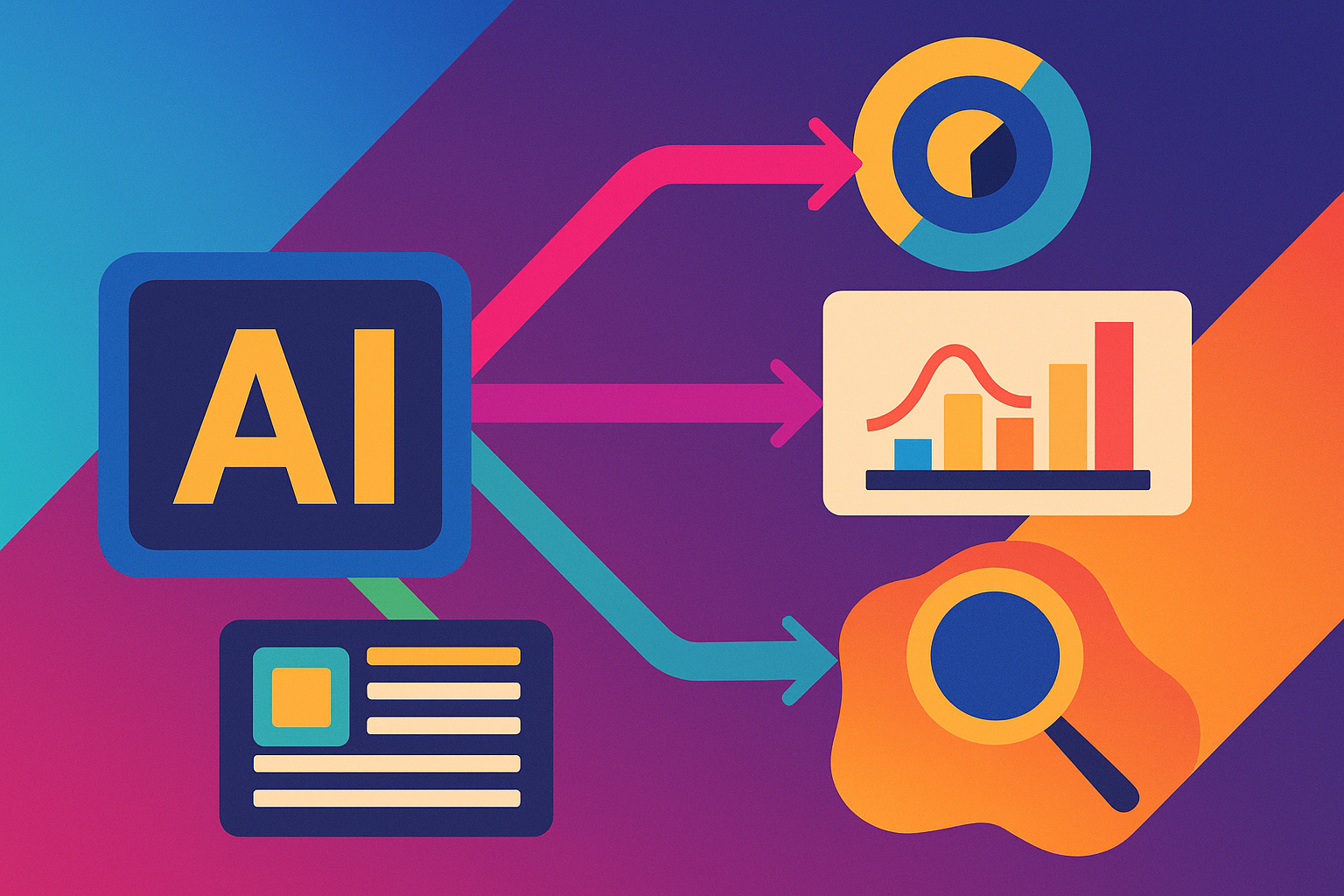The Ongoing Debate Around AI Content and Rankings
Since the rise of generative AI tools, marketers and content creators have been debating one big question:
Does Google penalize AI-generated content?
Despite Google’s public statements that they care more about quality than how content is produced, fear still lingers among SEO professionals. To settle the debate, we examined data from 600,000 web pages to better understand how AI content correlates with search engine rankings.
What we found confirms what we’ve seen at Theia Media: AI-assisted content is everywhere - and it’s not being punished.
The Methodology: How the Pages Were Analyzed
Researchers pulled 100,000 random keywords and extracted the top 20 ranking URLs for each keyword. This gave them a dataset of around 600,000 URLs. The content from these URLs was then analyzed using an AI content detection tool that categorized each page into:
- Pure AI
- Pure human
- Mixed AI + human (with varying levels of AI assistance)
The aim? To discover whether there was any correlation between the amount of AI-generated content and search ranking position.
Key Findings: AI Content Is Common - and Performing Well
Here’s what the data revealed:
- Only 13.5% of top-ranking pages were fully human-written.
- A staggering 86.5% of top-ranking pages contained some form of AI assistance.
- Within that group:
- 13.8% had minimal AI use (1–10%)
- 40% had moderate AI use (11–40%)
- 20.3% had substantial AI use (41–70%)
- 7.8% had dominant AI use (71–99%)
- Just 4.6% of pages were categorized as fully AI-generated.
This supports what we’re seeing in real-world content production: Most modern content is a hybrid of human insight and AI-powered optimization, editing, or ideation.
Does AI Content Influence Rankings?
To measure this, researchers ran a correlation between the percentage of AI content on a page and its position in search engine results.
The result: 0.011 correlation.
This means there’s virtually no relationship - positive or negative - between how much AI content is used and how a page ranks on Google. In other words:
Google doesn’t reward or penalize AI content.
If the content is useful, relevant, and satisfies the search intent, it can rank—regardless of how it was created.
Does Human Content Still Matter?
Interestingly, the data did reveal one subtle pattern:
Pages in the #1 position had slightly less AI-generated content than those in other positions.
While the difference was not dramatic, there was a minor correlation showing that pages with minimal AI use (0–30%) performed slightly better on average than pages with higher levels of AI.
So, while AI-assisted content performs well overall, the very top positions in Google may still reward that extra layer of human insight, originality, or nuance.
Theia Media’s Take: What This Means for Your SEO Strategy
At Theia Media, we work with businesses to integrate AI in content workflows without compromising quality. This research supports what we’ve long believed:
- AI content tools are not a threat - they’re a competitive advantage when used responsibly.
- Originality and value still matter most. Your content must help the reader, solve their problem, or educate them - regardless of how it was created.
- AI is best used as a collaborator, not a replacement. Use it to speed up your process, brainstorm variations, tighten your structure, and polish your copy - but don’t skip the human perspective.
Real-World Example
At Theia Media, we’ve helped clients increase their content output by 3x using AI-assisted workflows - without sacrificing ranking performance. In one project, we built a blog series where 70% of the draft was generated using AI tools, then layered in expert commentary and real-world examples from the client’s business. Several of those posts now rank in the top 5 for competitive keywords.
The takeaway?
You don’t have to choose between speed and quality - you can have both.
Final Thoughts
AI content is not inherently bad for SEO. The data is clear:
Google cares about content quality - not content origin.
The real question isn’t “Should I use AI?” but “How can I use AI to produce better, more helpful content?”
If you’re strategic, blend AI with human insight, and keep your audience’s needs front and center, you’ll be positioned to rank well - no matter what tools you use behind the scenes.









